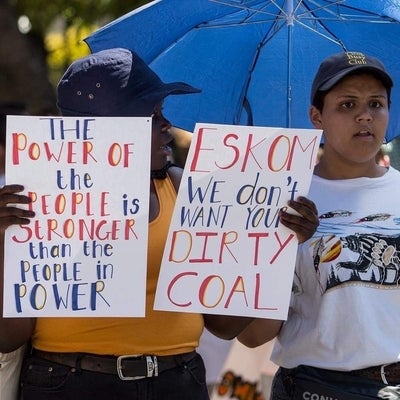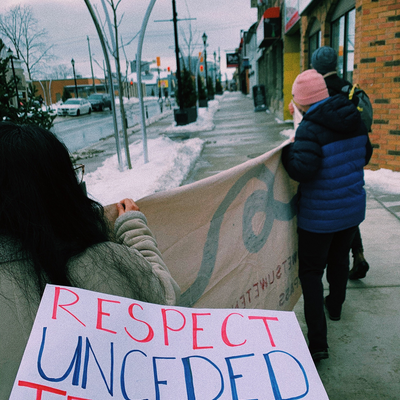
By: Krista Henry
When it comes to following her passion and carving a space for Black rights in the environmental movement, Celine Isimbi is leading with purpose.

Environment, Resources and Sustainability co-op student
A self-proclaimed ‘geography nerd’, Isimbi (she/her) is an Environment, Resources and Sustainability co-op student interested in reconciling the relationships between people and the environment by understanding space-place relations.
“I am an environmental liberation advocate for climate justice, environmental justice and Black liberation who brings them together and sees how they intersect in liberating futures,” she says.
Isimbi is striving for a world where future generations will face fewer barriers in all aspects of life. She does this through her co-op roles at the University of Waterloo and volunteering as an environmental education co-director with Black Girl Environmentalist. Black Girl Environmentalist is a non-profit aimed at creating space for underrepresented voices in the mainstream environmental movement.
During her co-op work terms, Isimbi has worked at the University as an equity project lead in the Centre for Career Action (CCA) and currently as an educational programming assistant in the Equity, Diversity, Inclusion and Anti-Racism (EDI-R) office.
“The work I’m doing now within co-op helps me see what it is like, because it's one thing to talk about equity, diversity and inclusion (EDI), but not see how it's operationalized. How are people actually taking it up?” she says. “This position and this work help me understand what it looks like currently. I can imagine the possibilities of what justice looks like within communities. When barriers are removed and pay walls are removed, when class is considered and where people are coming from.”
Approaching work intentionally

As a Black student, with ancestral roots in Rwanda and the Democratic Republic of Congo, Isimbi has a clear understanding of intersecting identities and experiences. With this lens she has found meaningful work for her co-op terms to help build a better future.
“When looking for co-op jobs, I looked at what resonated with me. My interest lies in research and disseminating information, so that it's accessible for all people at all levels, and then communicating that information. I do this through a political and principled lens. Both these roles in some way allowed me to do that,” she adds.
At CCA, Isimbi worked on assessing the EDI climate of the unit to create a framework that centralized the services and resources offered to students. In her role as educational programming assistant, she dove into training and assisting with staff workshops. “The EDI-R office really has been helpful in supporting and allowing me to say my own objectives and goals that I would like to actualize during this work. My opinions and ideas are really valued,” she says.
The racialized student equity experience
From her roles and lived experiences, Isimbi has learned that equity work is a marathon and not a sprint. Her hope is that the work being done today will one day remove all barriers for racialized and marginalized individuals. While EDI frameworks are important, she recognizes that these frameworks have limitations in a structure resistant to change.
It's important as Black, Indigenous and racialized students are going through the University, we need to not feel like we need to educate our professors, educate the staff that we're interacting with. EDI needs to already be implemented within the university, so students aren't burdened with that responsibility, which is currently happening.
“Students feel burdened with the responsibility of educating the professors and paying for University but then also doing the educating and doing the work on EDI. So that's why it's important, so that in that future, students no longer need to do that.”
Following her undergraduate studies, Isimbi hopes to use her education and co-op experiences in local communities to dismantle barriers that exist. It is her hope that this work will be rooted in a framework for environmental liberation led by youth.



